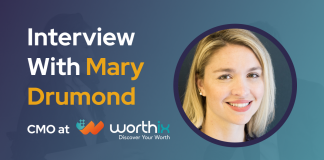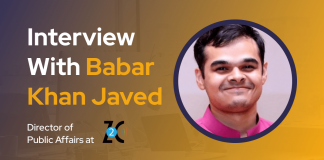Hi Wilson, tell us about yourself and your background.
I’m Brazilian, as you know, and I hold a master’s degree in Computer Science. Throughout my career, I have developed a strong background in management and digital technologies. For many years now, I have been working specifically to implement digital products in digital transformation programs.
How did you start working in the customer experience space?
I have always been interested in consumer behavior. I got more knowledge when I was a graduate in Administration, studying Consumer Behavior. I loved that. I asked myself, “How can anyone expect to progress without understanding how their customer behaves?”. But when I got to know Lean Thinking, I started to see the customer in a different light—putting the customer at the center of what the company does makes me think about everything we did wrong in the past. From there, I became obsessed with listening to the customer’s opinions. Customer feedback is mandatory in everything I model or design. Listening to the Voice of the Customer is an essential condition for success, in my perspective.
What do you think the top priority should be for a company that wants to improve its customer experience?
The evident and mandatory answer would be to listen to the customer, but I will suggest a previous step: knowing your customer. Some companies don’t know (or don’t want to know) who their customer is. Perhaps you can ask me how so? With so many techniques and competent professionals to understand the customer’s needs and desires, not wanting to pay attention to the customer?!…
I’ll illustrate it with a short story. Once, while designing a digital product for a large Brazilian financial company, our team identified that approximately 97% of that company’s customers used cell phones from a specific mobile platform. Here in Brazil, this can highlight significant demographic differences. This class of consumers was our focus from that. The engineering teams even adjusted their planning based on this premise. But when we presented the plan to the main sponsor, he opted for a change of direction. In other words, we redirected the product to the 3% of base customers. Do you believe it? The reason presented by him: he used a cell phone from another mobile platform with fewer users.
There are other examples. Some companies still need (want) to know and prestige their customer base.
How can companies better listen and understand their customer base?
I know that there are many techniques and tools nowadays, and this is not a secret or a competitive advantage for anyone. But for listening to your customer better and understanding their needs and wishes, you need to have that in the company’s DNA. Sometimes, some of your employees also use your product spontaneously. What fantastic potential!!! Are you taking advantage of this? Are you gathering your employees’ feedback?
But, to answer your question objectively, I would give the following guidelines to companies:
Enable as many communication channels as possible between you and your customer. Make it easy for your customer. Convince him that you want to improve the product for his delight and that his feedback is key to achieving that goal. Don’t think you’re doing the customer a favor; it’s just the opposite; he’s working for you and still paying you for it.
Many companies are currently undergoing digital transformation processes – what are your tips on a successful digital transformation?
I think we’ve been paying too much attention to processes and technologies. The famous SMACIT acronym Social, Mobile, Analytics, Cloud, and IoT is the main focus for many companies I know. Of course, all these things are essential, but people are the most crucial aspect.
We should not forget that the objective of the Digital Transformation programs is to make the company capable of adapting to complex scenarios. In other words, to develop so-called Business Agility. People need to build psychological ownership, cognitive engagement, etc., if tools and processes work appropriately towards this goal. Since the speed and complexity of the scenarios are very high, if a person commits a mistake, the system as a whole can be compromised. By the way, this year, Enterprise Agility University invited me to join them. They do a fantastic job using Neuroscience in the whole change process. That’s a pretty hot tip.
What are some CX companies/solutions you’re keeping your eyes on right now
I have been focusing my attention on Fintechs – the start-ups in the financial sector. They need to use a lot of creativity, as they operate in the industry of competitors with tremendous power, a David versus Goliath fight. For this, they try to combine differentiation strategies with cost reduction for the customer. Seeking to understand customers’ needs, such companies enable communication channels for gathering their opinions. They also seek to develop psychological ownership and cognitive engagement in their workforce. Indeed, some of them still need to grow in this regard, but most have been successful.
Of course, I have not stopped monitoring companies like Amazon, Apple, and KLM. Their DNA has a focus on customers. Their principles, long before their processes, keep the customer as their primary focus. Beyond their financial power can produce some disruptive and fast changes in the market.
What are some of your tips for people who want to work in the CX sphere?
From my perspective, the first and foremost thing you should do is “Fall in love with your customer.” Such love will be your reward for the efforts you’ll need to make, and believe me, and there won’t be a few.
The other ongoing line of action is to study hard to understand the tools and methods you will need to use. And also, learn to support the correct mindset that you will need to develop. And last but not least, it helps to develop and contribute to a healthy work environment. This healthy atmosphere is the driving force behind innovation, and this has already been empirically proven. And producing innovation is what the companies want us to do.
So many things changed in 2020. While some things are going to return to “normal,” what are new trends and habits you think will stay with us in the long term?
I think we are enjoying being more connected than ever. We have the amenities we’ve always wanted at our disposal, and it seemed that no supplier wished to provide us. We save time and energy, especially when work commuting, we won’t want to give up.
I see that the most visionary companies will move from the current level to genuinely disruptive innovations. For now, they are meeting our needs. I think that the best competitors in the market will quickly seek to meet the customer’s wishes; I already see emerging initiatives in this direction.
As for telework, some companies that viewed it with suspicion now have it as the only alternative not to close down their activities. Of course, we need better internet connection services, which is a big challenge for providers in some countries.
But a higher level of connectivity brings other challenges, such as security, for example. I usually see the two sides of the coin. And this is a market that only tends to grow, and security companies are enjoying it. CX teams will also “surf this wave” as we know that some security flaws are due to erratic user behavior. So shaping that usage journey will help design safer products.
Of course, there is a lot of flexibility due to the chaos that many countries are experiencing. When all these things pass, the Voice of the Regulator will act more strongly, and the context will tend to change. From my perspective, everything will depend on how societies are “digesting” all these changes because regulation arises to meet people’s demands. When they don’t like something, legislators create norms that the relationship is more transparent and not harmful to both parties.
e-Commerce boomed in 2020, and consumers started leaving more product reviews online. How can we make the most out of this momentum?
That’s the best part of all. People are working for us for free. Of course, the workload makes us work harder, and in general, we produce more errors. But if we are passionate about our customers, we must readily assume such mistakes, correct them, and, if possible, compensate our customers. Isn’t that how we do it with our boyfriends and girlfriends? We admit we made a mistake, correct your error, and even send flowers and chocolate. The customer understands our mistake. He doesn’t want to pay for our mistake, nor does he want that mistake to happen again. These steps will require internal adjustments to processes, calibration of tools, but especially the right attitude of the workforce to carry out the adjustments above. This period is especially difficult for companies whose employees classify as “annoying” customers who show the product or service error on the social network.
What is your favorite CX metric? Why?
I have two favorite metrics: NPS – Net Promoter Score and Customer Churn Rate. In our CX journey, we seek to delight the customer, which happens when he becomes a Promoter of our Product. Of course, we need to know how many of our customers are delighted and wish to promote our product.
The Customer Churn Rate (CCR) will help us understand if the product has any problem that makes customers stop using it. About the product lifecycle, CCR can help us identify if the product is reaching the decline stage.






